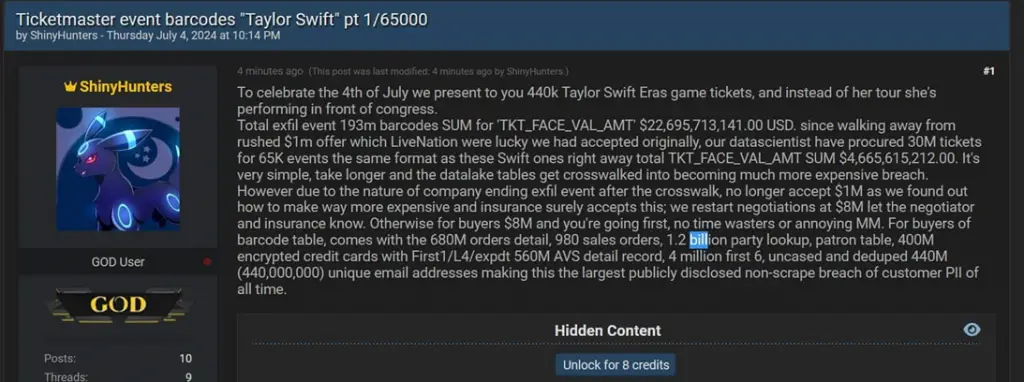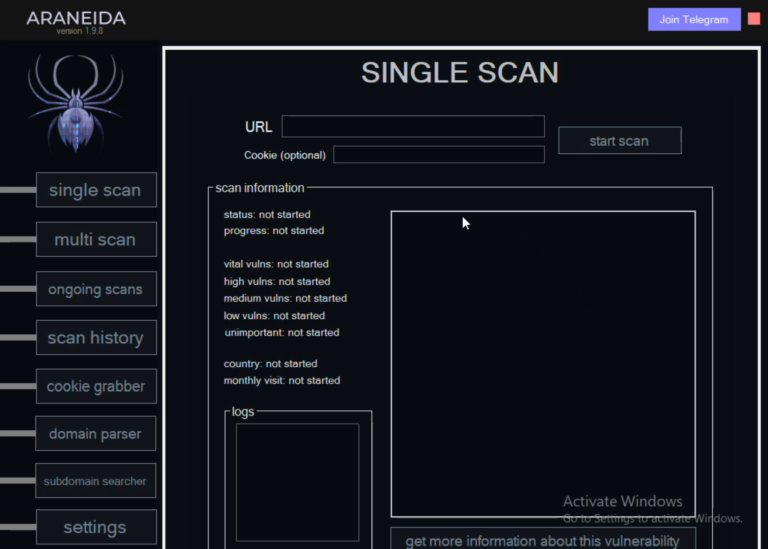
At the end of May, we reported on the breach of Ticketmaster, during which hackers managed to steal 1.3 TB of the company’s data. It later emerged that the compromised entity was a third-party intermediary, Snowflake, which dealt with sensitive information. Moreover, at least 165 other organizations that did not employ two-factor authentication within Snowflake’s systems suffered a similar fate.
The Ticketmaster breach resonated globally and began to fade from the news cycle. However, cybercriminals found a way to astonish the public once more. The ramifications of the Ticketmaster compromise have proven to be far more severe than initially anticipated.

The hacking group ShinyHunters announced on BreachForums that among the previously stolen 1.3 TB of data, they discovered 193 million barcodes, including 440,000 tickets for upcoming concerts by the renowned American singer Taylor Swift.
The total value of the stolen data is estimated at $22 billion, yet the hackers demanded only $8 million from LiveNation, Ticketmaster’s parent company, to prevent the release of tickets and other valuable information to the public.
Representatives of ShinyHunters stated that they initially agreed to LiveNation’s offer of $1 million to conceal the breach. However, realizing the true worth of the data, the hackers increased their demands to $8 million, indicating they could escalate the situation, making it even more costly for the company.
In addition to the tickets for Taylor Swift’s concerts, the hackers claim to possess another 30 million tickets, worth over $4.6 billion, for 65,000 various events. They detailed the stolen data, highlighting the following:
- 980 million orders;
- 680 million order details;
- 1.2 billion search records;
- 440 million unique email addresses;
- 4 million processed and duplicated records;
- 560 million Address Verification System (AVS) data points;
- 400 million encrypted credit card details with partial information.
The perpetrators asserted that the potential public release of this data could become the largest ever disclosed personal information breach (PII), compelling LiveNation to continue negotiations and possibly agree to the hackers’ terms.
Experts believe the stolen barcodes and ticket details could be used to create counterfeit tickets or for fraudulent resale unless Ticketmaster can massively invalidate them, ensuring future events are secured with new tickets. Nevertheless, the hackers can still utilize the remaining data for phishing and social engineering attacks.
Regardless of how this saga unfolds, Ticketmaster must investigate this incident with utmost transparency, focusing on enhancing its security protocols while working to regain customer trust. Customers, in turn, are advised to be vigilant and closely monitor their accounts for any suspicious activity.


